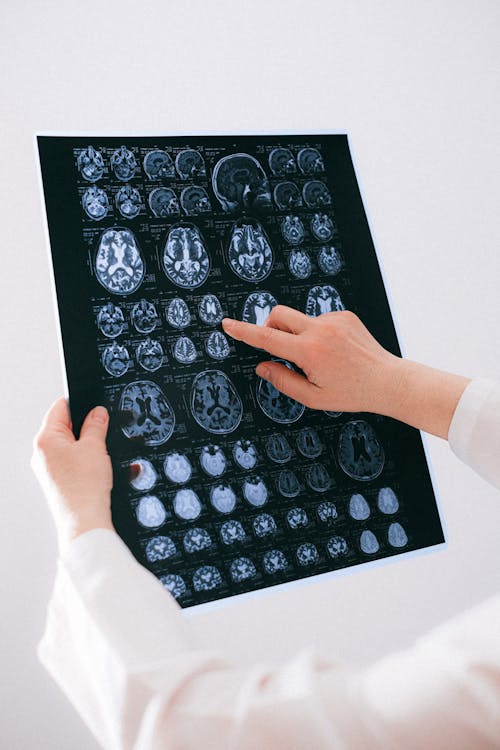Coffee is one of the most widely consumed beverages in the world. We drink more than 400 billion cups of coffee annually. And as an avid coffee connoisseur, I've heard every side of the argument for and against coffee.
I've heard the misleading myths and the negative aspects. However, there are tons of benefits from coffee, and caffeine isn't all that bad.
Disclaimer: The facts compiled in this article are fact-checked by reputable studies conducted by universities and established doctors. Nonetheless, you should contact your doctor about coffee consumption if you have further questions. The purpose of this article is to present an argument - not to serve as medical advice.
Overview Of Coffee
Coffee can be traced to its roots on the Ethiopian plateau. Merchants found this elixir and with trade, coffee spread to every corner of the world. Now, Brazil, Vietnam, and Colombia are the top coffee-producing countries, with Brazil producing about ⅓ of the world's coffee.
Coffee took the States by storm. Americans drink 146 billion cups of coffee every year. The coffee industry contributes over $225 billion to the economy, especially through chains like Starbucks and Dunkin' Donuts.
In 2023, there are nearly 40,000 coffee shops in America. These coffee shops became more than coffee shops, but as a place to relax and do some work. We got a little creative with coffee, creating seasonal varieties like the Pumpkin Spice Latte.

Image Credit: Tyler Nix from Pexels
Speaking of varieties, there are tons of different types of coffee: espresso, americano, cappuccino, mocha, latte, iced coffee, black coffee, and more! However, everything has side effects. There's a raging debate over the safety of coffee. Coffee is linked to some adverse side effects, so let's add some fuel to the fire: Is coffee all that bad?
Myths
- Coffee is a cause of breast and pancreas cancer.
The American Cancer Society ran a study and found “that coffee drinking is not a cause of female breast and pancreas cancers.” The National Institutes of Health ruled that there's no association between coffee consumption and pancreatic cancer either. Instead, their findings ruled that coffee can reduce liver cancer by 43%. Cancer can also reduce cancer in the endometrium, the tissue lining of the uterus.
- Adrenal Fatigue
Adrenal fatigue isn't an accepted medical diagnosis. It's a term for a collection of symptoms like body aches, fatigue, and sleep disturbances. The theory is that adrenal exhaustion causes stress exposure, and this can be caused by coffee. Unfortunately, adrenal fatigue isn't even real and if it was, coffee has no role in it.

Image Credit: Andrea Picaquadio from Pexels
- Caffeine dehydrates you.
This myth is controversial. Caffeine is a mild diuretic; it causes your body to pass more urine, which dehydrates you. However, the coffee replaces the fluids lost because coffee is 98% water.
Overall, coffee is a mild diuretic - but it won't impact you too much. This idea is fiercely argued upon between experts, but this is the consensus.
Pros
- Increased Productivity
Caffeine is a powerful stimulant. It can help you feel more alert since caffeine increases adrenaline levels. The increase in adrenaline levels causes more blood to flow to the brain, producing more productivity.
But is the extra productivity worth the loss of sleep? It depends on when you drink coffee. Caffeine's half-life is around 5 hours, so the rule of thumb is to drink coffee before 2 PM.

Image Credit: Cliff Booth from Pexels
- Lowers risk of heart disease
Studies have shown that coffee consumption lowers the chances of hypertension and heart failure. Caffeine is a stimulant, so it makes your heart beat faster, improving heart health. However, this comes with a catch.
Drinking two or more cups of coffee can have adverse impacts on your heart. It can cause high blood pressure and irritability.

Image Credit: Abdul Ozturk from Pexels
- Contains many antioxidants
Scientists have found over 1000 types of antioxidants. Antioxidants protect cells from damage, which is how coffee reduces the risks of cancer and heart disease. Hundreds of more antioxidants develop in the roasting process as well.
If you want more antioxidants, it's best to drink black coffee. Black coffee contains important vitamins like B2, B3, B5, and magnesium which all play vital roles in your body's health.
- Coffee enhances the firing of neurons: improving brain functions like cognitive function and memory.
According to a Harvard study conducted by celebrated author Dr. Uma Naidoo, “Caffeine increases serotonin which may stimulate the brain and help stabilize the blood-brain barrier. The polyphenol micronutrients in coffee may prevent tissue damage by free radicals, as well as brain blood vessel blockage.
High concentrations of trigonelline are found in coffee beans, which also activate antioxidants, thereby protecting brain blood vessels.” In other words, it's good for your brain to a certain extent. Like all things, too much of something is bad.

Image Credit: Anna Shvets from Pexels
Cons
As your brain functions, it produces adenosine, which binds to receptors that cause the sleepy feeling you feel. However, caffeine blocks adenosine preventing this sleepiness. This helps your brain feel refreshed and gives you energy.
The adenosine doesn't go anywhere though. Once the caffeine expires, the adenosine will bind and make you feel sleepy. Then, you'll buy another cup of coffee to battle the sleepiness, and the cycle repeats. This is the main argument against coffee, and there are other cons as well.
- Insomnia
Caffeine can impact our circadian rhythm; the internal clock our body has. Studies have found that caffeine can delay the circadian rhythm by several hours which leads to insomnia. Coffee also blocks adenosine receptors, and this causes the loss of sleepiness. This can be good in the morning, but not when you're trying to sleep.

Image Credit: Cottonbro Studios from Pexels
- Increase in heartbeat and irritability.
Caffeine activates the flight-or-fight response, which increases blood flow and blood pressure. This causes a jittery feeling and higher irritability. It does help you stay alert, but the intended effect may be negative.
As a reminder, none of this should influence your medical decisions. Check with your doctor before consuming coffee or blocking it from your diet. The purpose of this article is to “add some fuel to the fire.”
- Addictive
The FDA ruled caffeine as a drug. It stimulates the brain and increases dopamine levels. However, the increase in dopamine is relatively small compared to other drugs.
People tend to develop a dependence on caffeine, which is different. If you quit coffee (check in with your doctor first), you'll likely experience some withdrawal symptoms. These tend to be mild and include irritability, tiredness, and headaches.

Image Credit: Greta Hoffman from Pexels
Conclusion
Coffee is a necessity in today's world. It isn't a question. But there can be side effects just like everything.
It's addictive, it can cause insomnia, sleeplessness, and irritability. However, it has tons of advantages like higher productivity, less chances of certain cancers, and high antioxidants. It's up to you and your doctor. Don't be afraid to enjoy a Pumpkin Spice Latte. Just don't drink five of them in a day!











